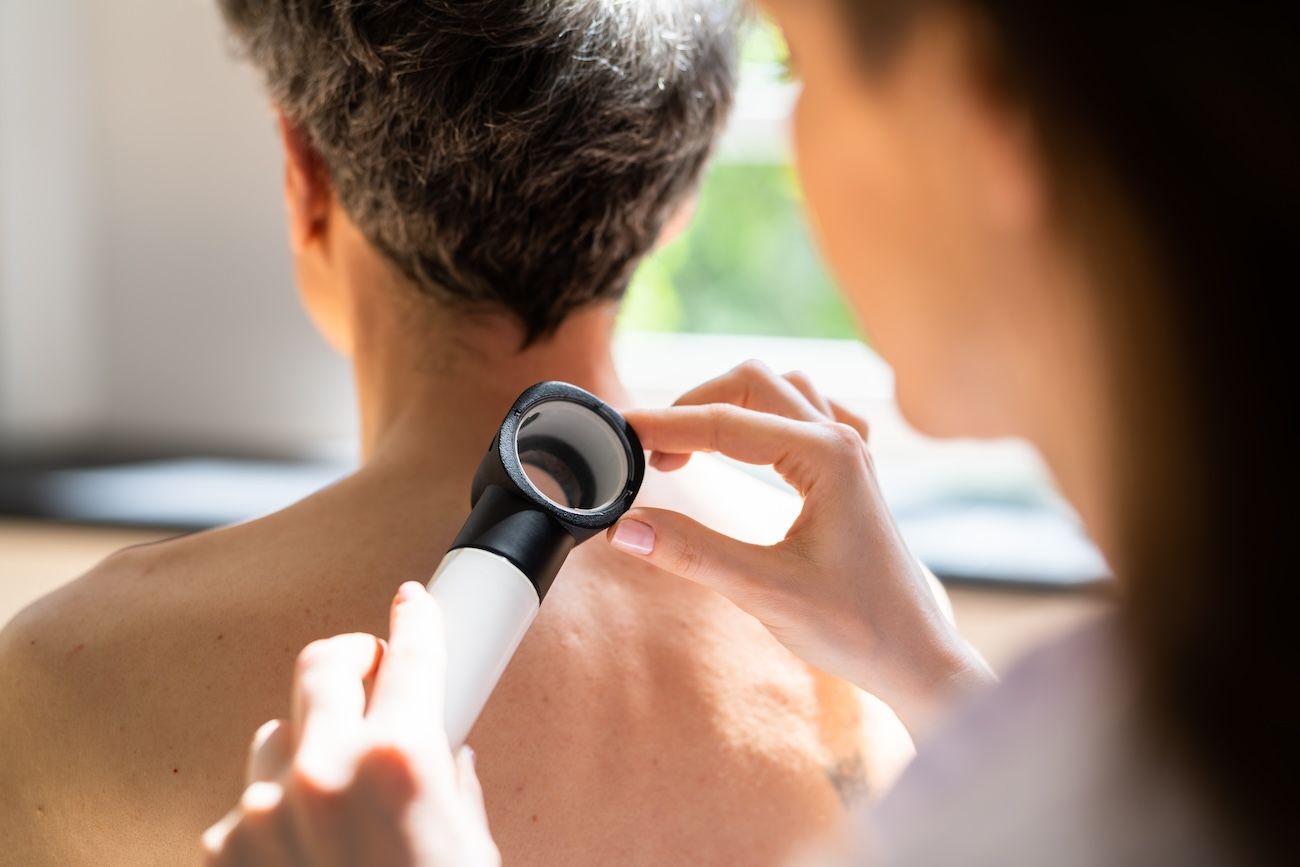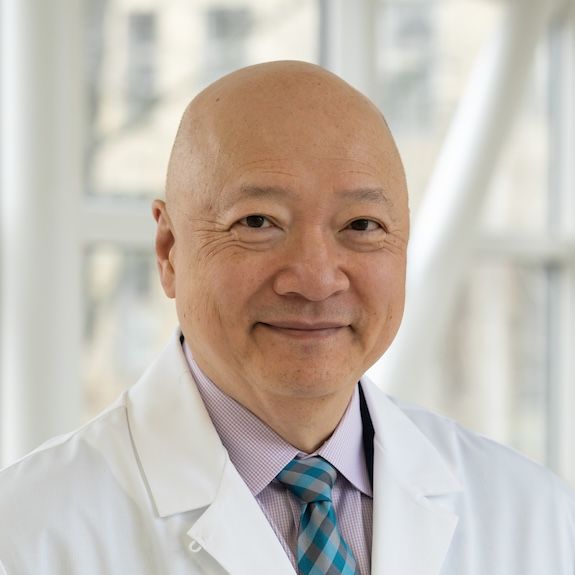Roswell Park’s Dr. Michael Wong is lead author of study highlighting promising new treatment
- Patients in this clinical trial had tumors progress with prior immunotherapy
- RP1 + nivolumab triggered 33% response rate with a 15% complete response rate
- Study appears in Journal of Clinical Oncology
BUFFALO, N.Y. — About half of all patients with advanced melanoma face a poor prognosis because their cancer doesn’t respond to immunotherapy — but results of a recent clinical trial show that an unusual treatment strategy could change that. Michael Wong, MD, PhD, FRCPC, Physician in Chief and Professor of Oncology in the Department of Medicine at Roswell Park Comprehensive Cancer Center, was part of an international research team that demonstrated the effectiveness of combining the FDA-approved immunotherapy nivolumab (Opdivo) with RP1, a modified version of HSV-1, the herpes simplex virus. Dr. Wong is first author of the study, which appears in the Journal of Clinical Oncology.
RP1 is an oncolytic virus engineered to kill cancer cells. Injected into tumors, oncolytic viruses cause cancer cells to burst, releasing antigens that trigger an immune response capable of destroying the injected tumors as well as other cancer cells throughout the body. RP1 is modified so that it does not cause the symptoms associated with HSV-1.
The phase 1/2 clinical trial enrolled 140 patients with advanced melanoma whose disease had not responded to previous treatment with an anti-PD-1 immunotherapy called a checkpoint inhibitor. They received intratumoral injections of RP1 plus intravenous nivolumab. The combination therapy produced an overall response rate of 32.9%, with 15% of patients experiencing a complete response — no evidence of disease. Median duration of response was 33.7 months. Overall survival was 75.3% at one year and 63.3% at two years.
“This study provides evidence that the combination of intratumoral RP1 and intravenous nivolumab is effective in patients with advanced melanoma when the disease was resistant to initial treatment with conventional immunotherapy, including the combination of nivolumab, also known as Opdivo, and ipilimumab, also known as Yervoy,” says Dr. Wong. “The treatment is well tolerated, and there is a very low incidence of significant side effects.”
Sponsored by the biotechnology company Replimune Group Inc., the study involved research partners from the U.S., the U.K., France and Spain.
Melanoma is the fifth most common cancer in adults. When the disease has metastasized, the five-year survival rate is 22.5%.
###
From the world’s first chemotherapy research to the PSA prostate cancer biomarker, Roswell Park Comprehensive Cancer Center generates innovations that shape how cancer is detected, treated and prevented worldwide. Driven to eliminate cancer’s grip on humanity, the Roswell Park team of 4,000 makes compassionate, patient-centered cancer care and services accessible across New York State and beyond. Founded in 1898, Roswell Park was among the first three cancer centers nationwide to become a National Cancer Institute-designated comprehensive cancer center and is the only one to hold this designation in Upstate New York. To learn more about Roswell Park Comprehensive Cancer Center and the Roswell Park Care Network, visit www.roswellpark.org, call 1-800-ROSWELL (1-800-767-9355) or email ASKRoswell@RoswellPark.org.
Jane Rose, Media Relations Specialist
716-845-4919; jane.rose@roswellpark.org

